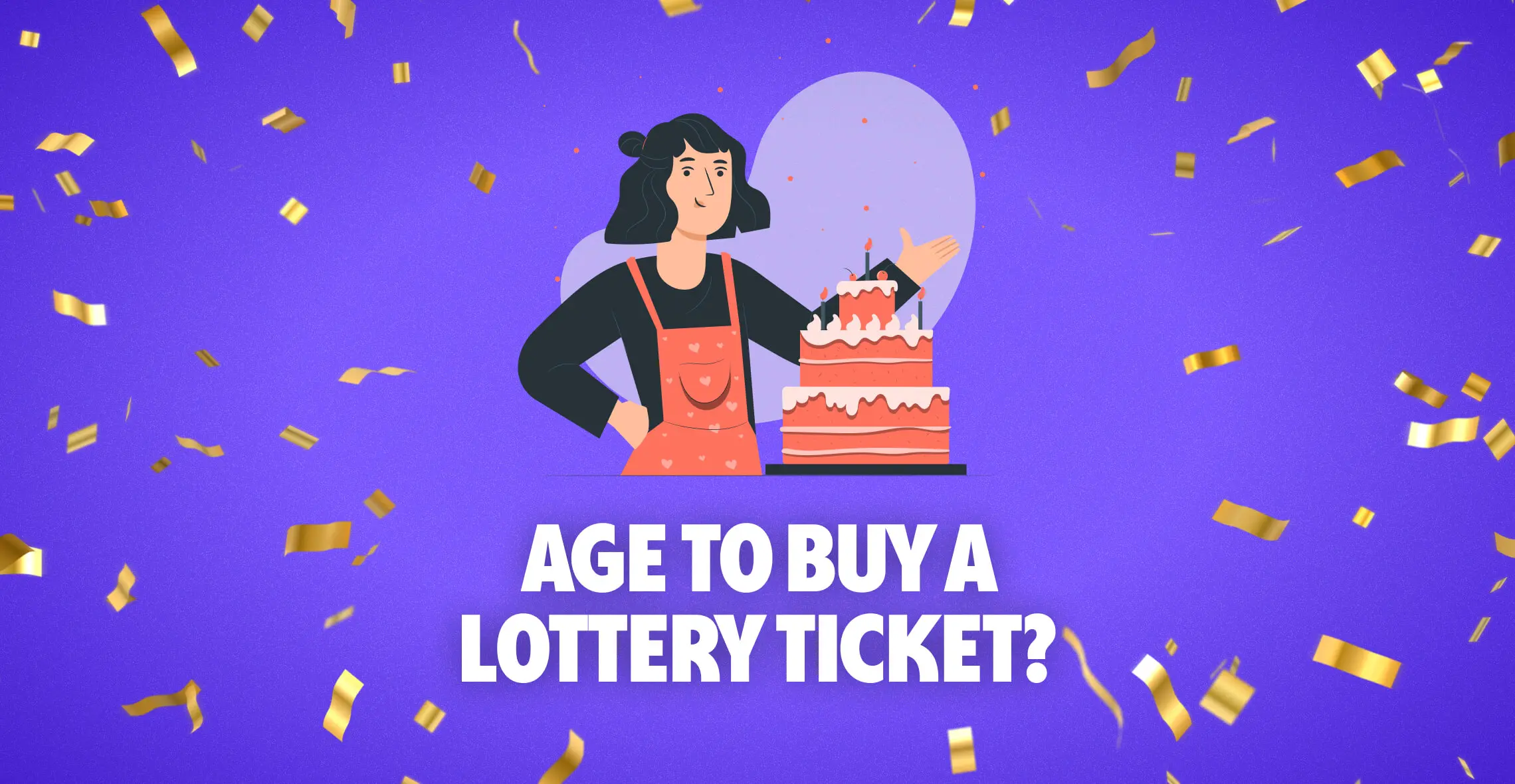How Old Do You Have to Be to Buy a Lottery Ticket? A Complete Guide
Written by Jackpot Staff
May 23, 2025

The thrill of potentially winning millions with just a small investment makes lottery tickets an exciting purchase for many. But before you start dreaming about what you'd do with that jackpot, there's an important question to answer: are you legally old enough to play? Age requirements for lottery tickets vary significantly depending on where you live, and understanding these rules is essential for both players and retailers.
In this guide, we'll explore the minimum age requirements for purchasing lottery tickets across the United States and around the world, explain the reasoning behind these age restrictions, and answer your most pressing questions about lottery age limits.
Lottery Age Requirements in the United States
The United States doesn't have a federal law governing lottery age requirements. Instead, each state sets its own rules, creating a patchwork of regulations across the country.
Most States Require Players to Be 18
In the majority of U.S. states, you must be at least 18 years old to purchase lottery tickets. This includes popular games like Powerball and Mega Millions, as well as scratch-off tickets. The 18-year threshold aligns with many other adult privileges in these states, reflecting the belief that by this age, individuals can make responsible decisions about gambling.
States with Higher Age Requirements
While most states set the minimum age at 18, there are notable exceptions:
- Louisiana: You must be 21 years old to purchase any lottery ticket in Louisiana. The state enforces strict ID verification policies, accepting only government-issued photo identification like driver's licenses or passports.
- Arizona: The minimum age for lottery participation is 21.
- Nebraska: You have to be 19 years old to buy lottery tickets in that state.
These states with higher age requirements often align their lottery age limits with their alcohol purchase age, creating consistency in their approach to regulated activities.
Since lottery age requirements are set at the state or jurisdictional level and can sometimes change, it's always best to verify the current minimum age directly with your official state lottery commission or a licensed local retailer. Consulting these official local resources ensures you have the most accurate and up-to-date information for your specific location before you decide to play.
International Lottery Age Requirements
Age restrictions for lottery purchases vary significantly around the world, reflecting different cultural attitudes and legal frameworks regarding gambling.
North America
In Canada, lottery age restrictions are determined provincially:
- Alberta, Manitoba, and Quebec set the minimum age at 18
- British Columbia, Nova Scotia, and other provinces require players to be 19
- All Canadian provinces prohibit minors from redeeming prizes, even if tickets were received as gifts
Europe
Most European countries set their lottery age limit at 18, including:
- United Kingdom (which raised its minimum age from 16 to 18 in 2021)
- Germany
- France
- Spain
- Italy
Asia and Oceania
- Japan: Lottery participants must be at least 20 years old
- Australia: Most states require players to be 18
- New Zealand: The minimum age is 18 for all lottery games
Why Are There Age Restrictions for Lottery Tickets?
The age restrictions on lottery purchases aren't arbitrary, and they serve several important purposes:
Protection from Gambling Addiction
Research indicates that early exposure to gambling activities can increase the risk of developing gambling disorders later in life. A 2024 study found that individuals aged 18-21 who were regularly exposed to lottery marketing were 34% more likely to develop problem gambling behaviors compared to older adults.
By implementing age restrictions, states and countries aim to protect young people whose decision-making abilities and impulse control may not be fully developed.
Alignment with Legal Adulthood
Many jurisdictions tie lottery eligibility to their legal definition of adulthood. In states where the age of majority is 18, lottery regulations often follow suit, based on the principle that individuals mature enough to vote or serve in the military should also be able to decide whether to participate in lotteries.
Louisiana's higher age threshold of 21 mirrors its alcohol laws, reflecting a more cautious approach to activities deemed potentially risky.
Revenue Protection
U.S. lottery sales exceeded $100 billion in 2024, with the portion that constituted government revenue at over $30 billion. Age restrictions help protect this revenue stream by ensuring operations remain socially responsible, reducing the risk of public backlash or legal challenges that could threaten lottery programs.
Enforcement of Age Restrictions
Ensuring compliance with age restrictions involves multiple stakeholders and increasingly sophisticated methods.
Retailer Responsibilities
Convenience stores and other lottery retailers serve as the front line for age verification. Many states have implemented "ID25" or similar policies, requiring clerks to check ID for customers who appear to be under 25 years old.
Penalties for selling to underage customers can be significant:
- Indiana imposes fines up to $500 for first-time violations
- Louisiana has steeper penalties, including $1,000 fines and potential license revocation for repeat offenders
Technological Solutions
States are increasingly adopting technology to prevent underage lottery purchases:
Texas is implementing ID scanners at self-service lottery kiosks by 2025. These systems read the barcodes on government IDs to verify age without storing personal information. Early results show a 22% reduction in underage purchase attempts where this technology has been deployed.
Online Lottery Sales
The rise of online lottery platforms like Jackpot.com has introduced new methods of age verification. Digital platforms typically use:
- ID document uploads
- Payment method verification (as most require users to be 18+)
- Advanced identity verification systems that cross-reference personal information with public records
These measures often provide more reliable age verification than in-person purchases, as they eliminate the subjective element of visual age assessment.
Common Questions About Lottery Age Requirements
Can someone under the minimum age redeem a winning lottery ticket?
Generally, no. In most jurisdictions, you must meet the minimum age requirement to claim lottery prizes, even if the ticket was purchased legally by someone else or given as a gift. For significant winnings, lottery offices typically require a valid ID that confirms the winner's age.
For tickets given as gifts to minors, parents or legal guardians usually must claim prizes on the minor's behalf, following specific procedures that vary by state.
What happens if someone underage buys a lottery ticket?
If an underage person successfully purchases a lottery ticket (due to a lack of proper ID checking or other reasons), several consequences may follow:
- The retailer who sold the ticket could face fines and penalties
- The minor may be unable to legally claim any winnings
- In some states, the minor might face penalties, though this is less common
Can parents buy lottery tickets for their children?
This depends on state laws:
- In states like Indiana, adults can legally purchase lottery tickets as gifts for minors
- However, in many states, any prizes won on these tickets must still be claimed by an adult
- Some states explicitly prohibit purchasing tickets with the intention of transferring them to minors
How do online lottery services verify age?
Online lottery platforms like Jackpot.com implement robust age verification systems:
- Users must provide their date of birth during registration
- Identity verification often requires uploading a government-issued ID
- Some services use database checks that cross-reference personal information against public records
- Payment methods provide an additional layer of verification
These measures generally make online lottery platforms more effective at preventing underage play than traditional retail locations.
Play Responsibly
Understanding the minimum age requirements for lottery participation is just the first step in responsible play. Whether you're just turning the legal age to play or you've been enjoying lotteries for years, it's important to approach gambling as entertainment, not as a financial strategy.
So what are you waiting for? If you've reached the legal age in your state, you're ready to begin your lottery adventure! Just remember to check your local regulations, play within your means, and most importantly, have fun with the possibility of winning while understanding that lottery games should always be played responsibly.

